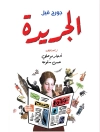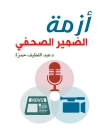An innovative textbook that presents a novel and compelling examination of family communication studies
Family Communication as… Exploring Metaphors for Family Communication presents a series of metaphors through which students explore the nuances and complexities of family interaction. With a unique approach to the foundational theories and real-world practices of family communication, this easily accessible textbook helps students develop a clear understanding of what family communication is and what it can be.
Contributions by both prominent and newer scholars theorize about family communication, offer new perspectives, challenge long-held assumptions, and describe original research to provide students with an up-to-date representation of the leading thinking in the field. Each concise chapter focuses on a specific element of family life, engaging key metaphors to stimulate classroom discussion about family in contexts ranging from ritual and embodiment to estrangement and heteronormativity. Throughout the text, students examine family metaphorically–as memory, as social identity, as estrangement, as loss, as resilience, as raced, and more.
* Presents a metaphorical examination of creating, materializing, contextualizing, politicizing, and complicating family communication
* Offers an innovative alternative to standard textbooks on the subject
* Features a thorough introduction advocating for the use of metaphors in teaching
* Discusses the key topics and theoretical approaches that have defined the field
* Includes detailed references, additional readings, and an instructor’s companion website
Family Communication as… Exploring Metaphors for Family Communication is an excellent textbook for advanced undergraduate and graduate students in courses including family communication, family studies, interpersonal communication, relational communication, and communication theory. It is also a highly useful resource for scholars in fields such as media studies, psychology, sociology, social work, counseling, and public health.
สารบัญ
FORWARD
INTRODUCTION:
1. Family Communication as… Choice: Thinking about and Theorizing Family Communication Studies Using Metaphors -Jordan Allen, Utah Valley University; Katherine J. Denker, Ball State University; and Jimmie Manning, University of Nevada, Reno
PART I: CREATING AND SUSTAINING FAMILY: FAMILY COMMUNICATION AS…
2. Relationship – Mary Anne Fitzpatrick, University of South Carolina
3. Ritual – Dawn O. Braithwaite and Robert D. Hall, University of Nebraska-Lincoln
4. Biology – Anuraj Dhillon, California Polytechnic State University and Amanda Denes, University of Connecticut
5. Maintenance – Scott A. Myers, West Virginia University
6. Transition – Carolyn K. Shue and Glen H. Stamp, Ball State University
PART II: MATERIALIZING FAMILY: FAMILY COMMUNICATION AS…
7. Social Identity – Jordan Soliz and Morgan April, University of Nebraska-Lincoln
8. Heteronormative – Yachao Li, College of New Jersey
9. Raced – Shardé M. Davis, University of Connecticut and Megan E. Cardwell, University of Nebraska, Lincoln
10. Embodied – Laura L. Ellingson, Santa Clara University
11. Performance – Bernadette Marie Calafell, Gonzaga University and Nivea Castaneda, Boise State University
12. Narrative – Jody Koenig Kellas and Toni Morgan, University of Nebraska, Lincoln
13. Dialogue – Elizabeth A. Suter, University of Denver and Leah M. Seurer, University of South Dakota
14. Object – Devika Chawla, Ohio University
PART III: CONTEXTUALIZING FAMILY: FAMILY COMMUNICATION AS…
15. Memory – Robin M. Boylorn, University of Alabama
16. Boundary – Jeffrey T. Child, Kent State University
17. Organization – Caryn E. Medved, State University of New York Baruch College
18. Health – Christina G. Yoshimura, University of Montana
19. Mediated – Rebecca Johnson, University of Kansas and Danielle M. Stern, Christopher Newport University
20. Art – Sandra L. Faulkner, Laura Stafford, and Kimberly Kuiper, Bowling Green State University
PART IV: COMPLICATING FAMILY: FAMILY COMMUNICATION AS…
21. Argument – Jennifer L. Bevan and Erin S. Craw, Chapman University
22. Deviance – Kristina M. Scharp, University of Washington and Elizabeth Dorrance Hall, Michigan State University
23. Taboo – Allison R. Thorson, University of San Francisco and Amanda J. Holman, Creighton University
24. Failure – Andrea Lambert South and Jacqueline Emerine, Northern Kentucky University
25. Loss – Jillian A. Tullis, University of San Diego
26. Forgiveness – Vincent R. Waldron and Douglas L. Kelley, Arizona State University
27. Support – Adrianne Kunkel, University of Kansas; Natalie Hoskins, Middle Tennessee State University; Marissa Wiley, University of Kansas; and Michael Robert Dennis, Emporia State University
28. Resilience – Tamara D. Afifi, Chantel Haughton, and Allison Mazur, University of California Santa Barbara
เกี่ยวกับผู้แต่ง
JIMMIE MANNING is Professor and Chair of Communication Studies at the University of Nevada, Reno. He has authored over 100 publications including Researching Interpersonal Relationships: Qualitative Methods, Studies, and Analysis. He has received numerous teaching honors including the National Communication Association Outstanding Mentor in Master’s Education Award.
JORDAN ALLEN is Assistant Professor of Communication at Utah Valley University, where she teaches classes in interpersonal communication, family communication, research methods, and the dark side of interpersonal/family communication. Her program of research interrogates how nonnormative family relationships are symbolically and materially constituted in communication.
KATHERINE J. DENKER is Professor, Basic Course Director, and Director of Graduate Studies in Communication Studies at Ball State University. She has received the Organization for the Study of Language Communication and Gender (OSCLG) Feminist Teacher Mentor Award. Her research program centers on issues of power and marginalization in instructional and interpersonal relationships.












